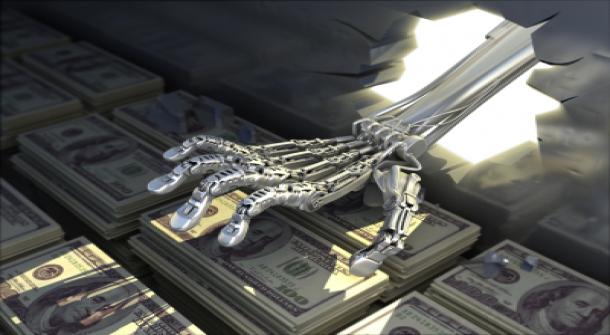Did Russian hackers almost bring down the nasdaq?

It has just been revealed that in 2010, Russian hackers, likely associated with the Russian government, and using using custom-designed malware to exploit zero-day vulnerabilities (something that should absolutely not be present in systems of this sort) were able to infiltrate the NASDAQs systems for the purposes of snooping around. However, it appears it also had the capabilities of delivering what is known as a ‘Logic Bomb;’ a destructive program that waits until a specific date occurs before it does its damage.
A destructive program destroying the internals of the NASDAQ’s servers would have wreaked havoc across the U.S. financial infrastructure, and the world’s as well. And it turns out that once the malware was discovered it appeared it could have wiped out the NASDAQ’s internals completely. So serious was it, that although no less than five separate federal security agencies had discovered the infiltration, they felt it had to be brought to the attention of the President.
 The investigation discovered that not only did these Russian hackers have access to the NASDAQ’s servers, but Chinese hackers did as well along with other unidentified intruders, and that the servers were very vulnerable to attack with one person referring to it as a swamp. Although the potential impacts were catastrophic, the NASDAQ never reported the attacks nor indicated their severity. Expanding on the investigation, it turns out most banks and large financial institutions were possessed of the same vulnerabilities.
The investigation discovered that not only did these Russian hackers have access to the NASDAQ’s servers, but Chinese hackers did as well along with other unidentified intruders, and that the servers were very vulnerable to attack with one person referring to it as a swamp. Although the potential impacts were catastrophic, the NASDAQ never reported the attacks nor indicated their severity. Expanding on the investigation, it turns out most banks and large financial institutions were possessed of the same vulnerabilities.
The scary part is that no conclusion was ever reached. Even the ultimate purpose of the intrusion is unclear; some say it was to do damage, some say it was just so the Russians could build an equivalent system. It also shows that we are not as far ahead as we often think in terms of security or technology; we still can’t definitively say it was actually the Russians. Great advances have been made since this event happened, but it’s a global race and it seems we’re still in no position to prevent it.
